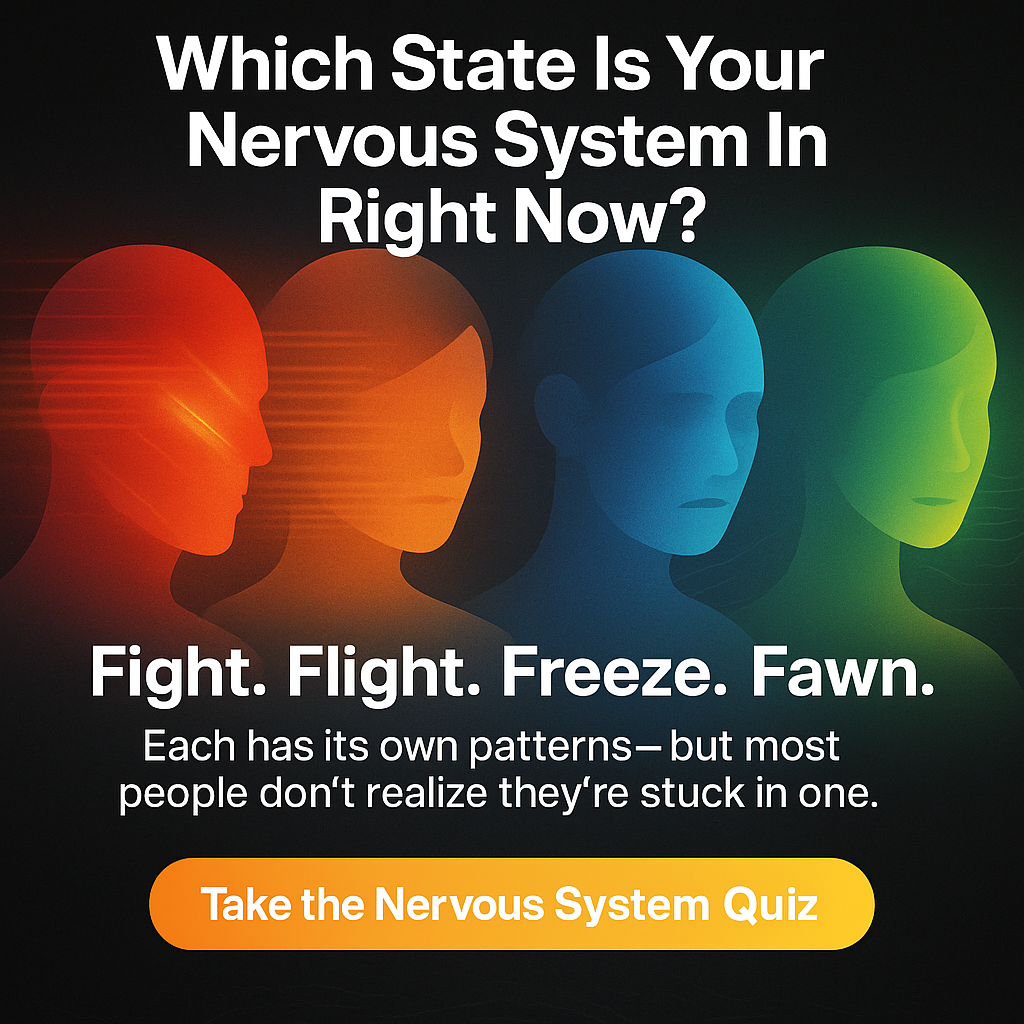
What Are Panic Attacks? Why Do They Happen? Can I Stop Them?
Dr Kim’s somatic exercises helped me control my panic attacks!
Panic attacks are your body’s way of saying: system overload, must reboot.
A panic attack is a very sudden change in your body where you have a huge surge in anxiety and fear. This feeling triggers a physical response from your body.
Your panic attacks could be caused by a variety of things from the physical environment you’re experiencing outside to the emotions you’re feeling inside.
To get ahead of your panic attacks, predict them, and stop them altogether, it helps to know exactly what they are, how they affect your body, and what triggers them.
That’s exactly why we’ve put this article together for you.
At Neurotoned, we believe in giving you the power and knowledge to help yourself.

What Causes Panic Attacks?
Your panic attacks can be caused by external or internal stimuli or both. You’re a unique person so your panic attack triggers are unique too.
External Stimuli
If your panic attacks are caused by external stimuli, it means they’re caused by things around you.
You’re in an over-stimulating environment with loud noises, strong smells, or extreme temperatures.
Your body is dysregulated and your parasympathetic nervous system is not working properly.
You’re dealing with chronic or acute stress.
Internal Stimuli
If your panic attacks are caused by internal stimuli, it means they’re caused by things inside your body and mind.
You’ve been emotionally triggered.
You’re chemically overstimulated from caffeine or narcotic substances.
You’re physically overstimulated from sudden or too much cardio exercise.
You’ve got a hormonal or neuro-chemical imbalance due to illness, medication, or injury.
What Happens During A Panic Attack?
A panic attack is a bit like falling dominoes. Once your anxiety is triggered to the point of a panic attack, it kicks off an emotional response, and then a physical one.
A panic attack is a sudden and intense episode of anxiety that is so extreme all you feel is fear.
That fear you feel is a physical expression of your anxiety.
What Does A Panic Attack Feel Like?
Your pulse races
Your breathing speed up or feel like you can’t get a breath in
Dizziness
A tight chest
A sense of doom
Muscle tension
Weakness in your arms and legs
Like the world isn’t real (derealization)
A disconnection with your body (dissociation)
Paranoia
Chills or sweats or both
This list doesn’t include everything because like we said, your panic attack is unique to you and your body.1
What Happens In My Body During A Panic Attack?
During this period of intense fear, your body is in fight, flight, or freeze mode.
1. You’re emotionally triggered and experience intense anxiety and fear.
2. Your hypothalamus releases a hormone called CRH (corticotropin-releasing hormone) to the pituitary gland.
3. Your pituitary gland responds by releasing a hormone called ACTH (adrenocorticotropic hormone).
4. The ACTH signals to the adrenal glands on top of your kidneys to release cortisol and adrenaline.
5. The adrenaline and cortisol put your body into hyper-aware survival mode.2

Adrenaline increases your heart rate and breathing, getting you ready to run or fight. Cortisol prepares your body for survival by increasing blood sugar levels to give the brain and body extra energy to survive or repair damage.
How Long Is A Panic Attack?
Your panic attack could last from a few minutes to half an hour.
However, the adrenaline and cortisol linger in the body for hours after the panic attack ends.
Chronic panic attacks release a steady stream of these two hormones into your body and cause problems such as weight gain, fatigue, insulin resistance, hypertension, muscle wasting, and osteoporosis.
Can I Stop My Panic Attacks?
Yes!
There are different types of treatment for panic attacks depending on the root cause of them.
Some people may choose traditional talk therapy, lifestyle changes, behavioral therapy, or stress management programs.
At Neurotoned, we believe that somatic healing will help ease your panic attacks as well as treat one of the major causes: body dysregulation and poor vagal toning.
The science behind the connection between vagal toning and emotional dysregulation is well documented.3
A healthy nervous system is necessary for robust mental health.
Many people think the nervous system can’t be exercised or toned because it’s not a muscle.
This simply isn’t true.
Somatic exercises target the parasympathetic nervous system (vagus nerve) and stimulate it. Stimulating the vagus nerve engages, tones, and keeps it active and healthy.
Neurotoned offers programs created by Dr Kim DiRe’ on vagal nerve toning and dealing with dissociation and stored trauma.
FAQs On Panic Attacks
Are panic attacks genetic?
There is no concrete answer to whether panic disorders are genetic yet. However, panic disorders are known to cluster in families.
Other mental and physical illnesses that have panic attacks as a symptom can be genetic such as depression and personality disorders.
Are panic attacks a symptom of high blood pressure?
High blood pressure can make you feel like you’re constantly anxious. This can trigger panic attacks in the right circumstances.
What does somatic mean?
Somatic means “of the body” in Latin. So when we talk about somatic exercises, we’re talking about using and moving the body for the sake or benefit of the body.
Wrapping Up On Panic Attacks…
Panic attacks can be disabling both physically and emotionally. Living in a place where you’re constantly swinging between fear, hyperawareness, and fatigue damages the mind and body.
Not all hope is lost! You can treat and eventually prevent your panic attacks altogether by identifying your triggers, releasing your stored trauma, and toning your vagus nerve through somatic exercises.

Our Recommended Reading:
- Bovasso, G., & Eaton, W. (1999). Types of panic attacks and their association with psychiatric disorder and physical illness. Comprehensive Psychiatry, 40(6), 469–477. https://doi.org/10.1016/s0010-440x(99)90092-5
- Endocrine Society, 2022, Adrenal Hormones. Patient Care. https://www.endocrine.org/patient-engagement/endocrine-library/hormones-and-endocrine-function/adrenal-hormones
- Porges, S. W., Doussard-Roosevelt, J. A., & Maiti, A. K. (1994). Vagal Tone and the Physiological Regulation of Emotion. Monographs of the Society for Research in Child Development, 59(2/3), 167–186. https://doi.org/10.2307/1166144
Discover Your Vagal Tone
Find out how dysregulated your nervous system is and get your personalized roadmap to feeling calm, energized, and in control




